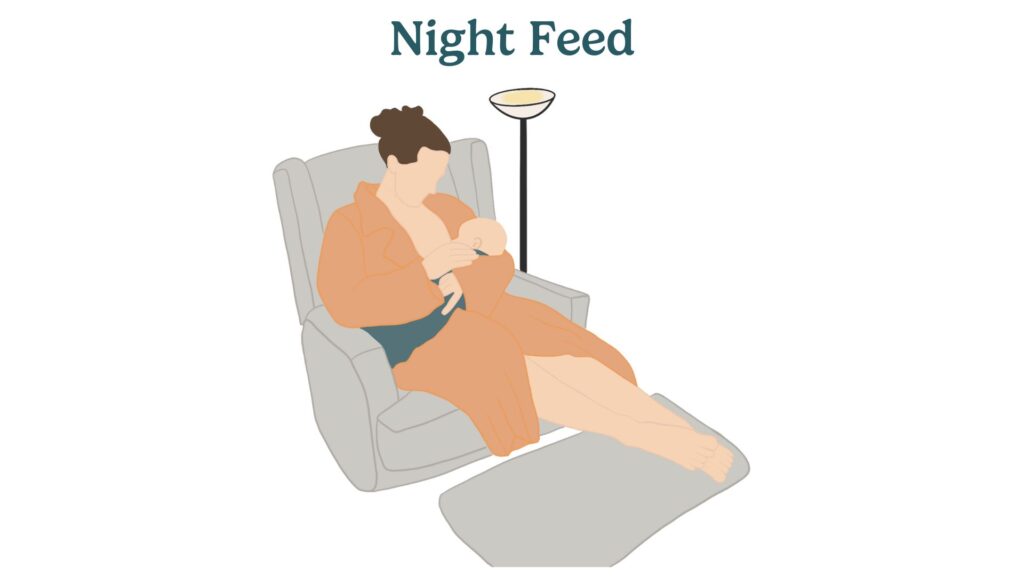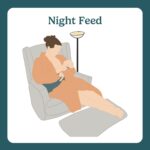night feed

Night feed
Night feeds involve feeding your baby during the nighttime hours. These feedings are important for newborns and young infants, as they provide essential nutrition and help maintain milk supply.
What to watch out for
It’s important to understand the importance of night feeds and how to manage them effectively. Here are some considerations and tips:
Benefits
- Essential nutrition: Night feeds provide necessary calories and nutrients that support your baby’s growth and development.
- Maintains milk supply: Regular breastfeeding or pumping during the night helps maintain your milk supply. Prolactin levels (breastmilk production hormone) are highest from around midnight to 6 AM.
- Promotes bonding: Night feeds can be a quiet time for bonding between you and your baby.
- Protects against SIDS: Night feedings are thought to help protect against Sudden Infant Death Syndrome (SIDS).
Potential Challenges
- Sleep disruption: Frequent night feeds can disrupt your sleep and lead to fatigue.
- Comfort: Finding a comfortable and safe position for night feeds is important to avoid discomfort and promote better sleep for both you and your baby.
Tips for Managing Night Feeds
- Create a calm environment: Keep the room dimly lit and quiet to help your baby stay calm and go back to sleep easily after feeding.
- Comfortable positioning: Use pillows or a nursing chair to find a comfortable position for night feeds. Side-lying position can be especially helpful for breastfeeding at night.
- Stay organized: Keep necessary items, such as diapers, wipes, and water, nearby to make night feeds more efficient.
- Feed on demand: Respond to your baby’s hunger cues rather than sticking to a strict schedule. This helps ensure your baby gets enough milk and can help them go back to sleep more easily. Learn more about responsive feeding.
Physical limitations or health circumstances
Certain conditions can influence the need for and approach to night feeds:
- Low birth weight: Babies with low birth weight may need more frequent night feeds to support growth.
- Growth spurts: During growth spurts, your baby may need more frequent night feeds to meet their increased nutritional needs. Common times for growth spurts include 3-5 days, 7-10 days, 2-3 weeks, 4-6 weeks, and 3, 4, 6, and 9 months.
- Health conditions: Babies with certain health conditions may require more frequent or specialized feeding during the night.
Other terms
Understanding related terms can help you better manage night feeds and related feeding practices:
- Cluster feeding: Periods when a baby feeds more frequently over a few hours, often in the evening. This is normal around growth spurts.
- Dream feeding: Feeding your baby while they are still asleep or very drowsy to help them sleep longer.
- On-demand feeding: Feeding your baby whenever they show signs of hunger, rather than on a fixed schedule. Learn more about on-demand feeding.
- Lactation consultant: A professional who can provide support and guidance on breastfeeding and night feeds.
- Sleep regression: Periods when a baby’s sleep patterns change, often coinciding with growth spurts or developmental milestones.


